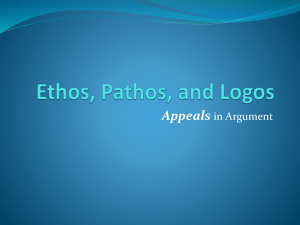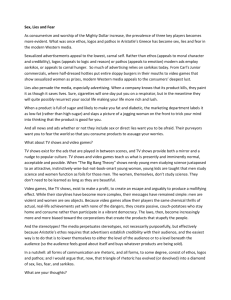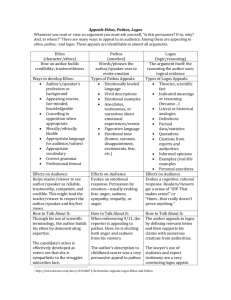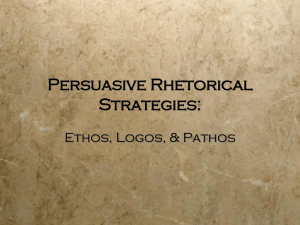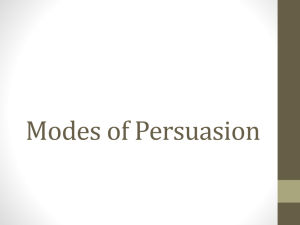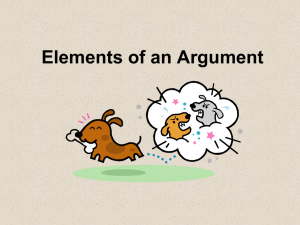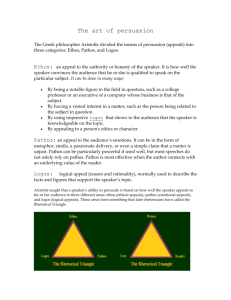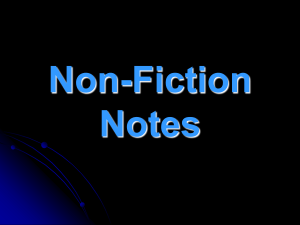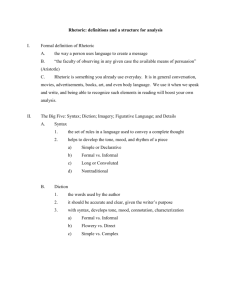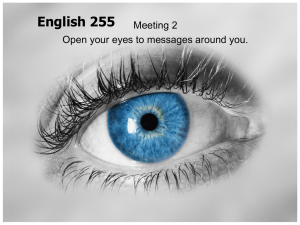Ethos Pathos Logos: Rhetorical Appeals Explained
advertisement
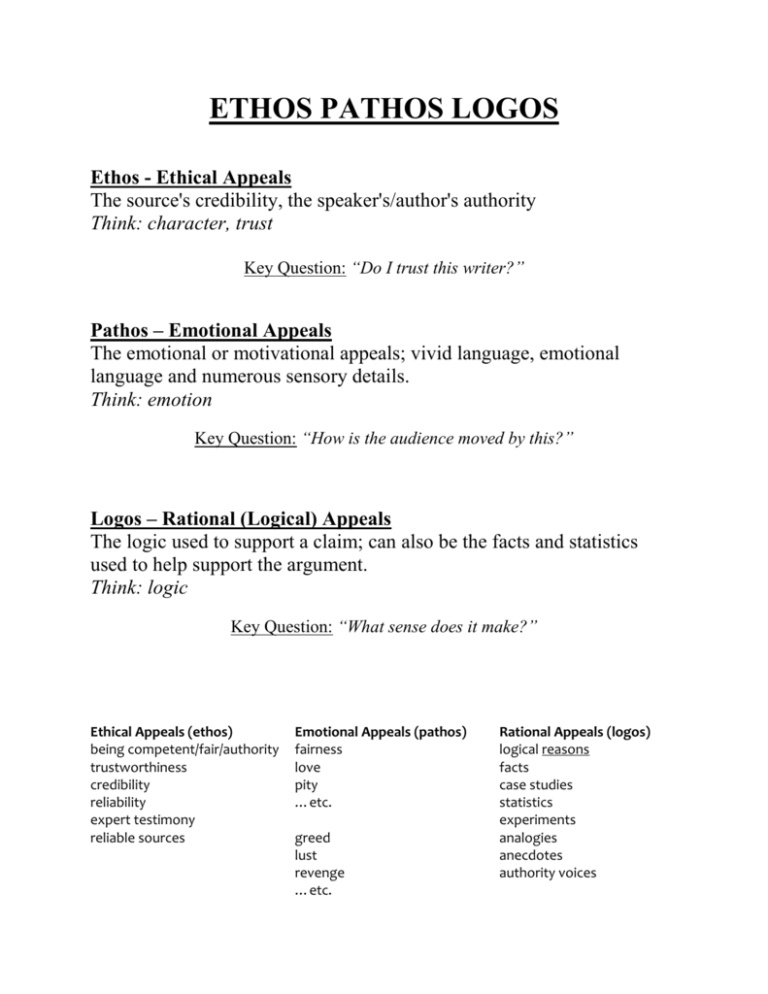
ETHOS PATHOS LOGOS Ethos - Ethical Appeals The source's credibility, the speaker's/author's authority Think: character, trust Key Question: “Do I trust this writer?” Pathos – Emotional Appeals The emotional or motivational appeals; vivid language, emotional language and numerous sensory details. Think: emotion Key Question: “How is the audience moved by this?” Logos – Rational (Logical) Appeals The logic used to support a claim; can also be the facts and statistics used to help support the argument. Think: logic Key Question: “What sense does it make?” Ethical Appeals (ethos) being competent/fair/authority trustworthiness credibility reliability expert testimony reliable sources Emotional Appeals (pathos) fairness love pity …etc. greed lust revenge …etc. Rational Appeals (logos) logical reasons facts case studies statistics experiments analogies anecdotes authority voices Reading Rhetorically: Questions to Ask About the Writer, Emotions and Logic ETHOS What can you infer about the author from the text? Does this author have the appropriate background to speak with authority on this subject? What comparisons does the writer make to other people, places, or events within the text to establish authority? Is the author knowledgeable? What does the author’s style and language tell the reader about him or her? Does the author seem trustworthy? Why or why not? Does the author seem deceptive? Why or why not? Does the author appear to be serious? PATHOS Does this piece affect you emotionally?/ Does the writer appeal to your emotions—feelings of sadness, pride, fear, being young, anger, patriotism, love, justice? Which parts? Do you think the author is trying to manipulate the readers’ emotions? In what ways? At what point(s)? How does the writer/text try to establish a relationship or common ground with the reader? What circumstances can we as an audience relate to? Do your emotions conflict with your logical interpretation of the arguments? Does the author use humor or irony? How does that affect your acceptance of his or her ideas? LOGOS What are the major claims and assertions made in this reading? Do you agree with the author’s claim that….? What evidence has the author supplied to support the claims? How relevant and valid do you think the evidence is? How sound is the reasoning? Is there any claim that appears to be weak or unsupported? Which one, and why do you think so? What counterarguments has the author addressed? Do you think the author has left something out on purpose? Why? How have the author’s ideas developed over the course of the text? Does the writer jump to conclusions or have logical fallacies?
